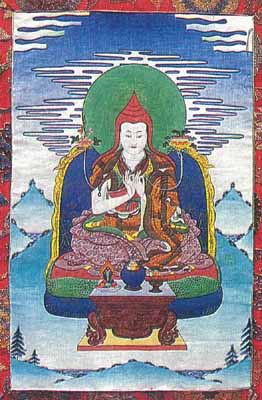Dodrubchen Jigme Tenpe Nyima: Difference between revisions
No edit summary |
|||
| Line 42: | Line 42: | ||
*[http://www.tbrc.org/cgi-bin/tbrcdatx?do=so&resource=P248 TBRC Page on Dodrup Tenpey Nyima] | *[http://www.tbrc.org/cgi-bin/tbrcdatx?do=so&resource=P248 TBRC Page on Dodrup Tenpey Nyima] | ||
*One of the 3rd Dodrubchen's incarnations web-site [http://www.baselesshappiness.com/sungtrul/index.htm] | *One of the 3rd Dodrubchen's incarnations web-site [http://www.baselesshappiness.com/sungtrul/index.htm] | ||
*Teachings on the offering of flowers: by Jigme Tenpe Nyima [www.tulkuthondup.com] | *Teachings on the offering of flowers: by Jigme Tenpe Nyima [http://www.tulkuthondup.com] | ||
[[Category:Longchen Nyingthig Masters]] | [[Category:Longchen Nyingthig Masters]] | ||
[[Category:Buddhist Masters]] | [[Category:Buddhist Masters]] | ||
[[Category:Nyingma Masters]] | [[Category:Nyingma Masters]] | ||
[[Category:Dzogchen Masters]][[Category:Glossary]][[Category:da]][[Category:Key Termsཇ]] | [[Category:Dzogchen Masters]][[Category:Glossary]][[Category:da]][[Category:Key Termsཇ]] | ||
Revision as of 05:26, 16 May 2021
རྡོ་གྲུབ་ཆེན་འཇིགས་མེད་བསྟན་པའི་ཉི་མ་
rdo grub chen 'jigs med bstan pa'i nyi ma
Small Biography
The Third Dodrupchen Rinpoche Jigme Tenpe Nyima (1865-1926),, born in Golok, as the son of Dudjom Lingpa, he had seven younger brothers, all of whom were famous tulkus; received teachings from Patrul, Khyentse Wangpo, Kongtrul, Mipham and Terton Sogyal. An important master in the Longchen Nyingthig
Jikmé Tenpé Nyima was born in East Tibet as the son of Dudjom Lingpa. He was recognized by the fourth Dzogchen Rinpoche, Mingyur Namkhé Dorje, and others, and was enthroned at Dodrupchen monastery, where he remained for the rest of his life. He received many teachings from Patrul Rinpoche, and also Jamyang Khyentse Wangpo, Mingyur Namkhé Dorje, Dzogchen Khenpo Pema Vajra, Mipham Rinpoche and Jamgön Kongtrul, and he became extremely learned in both New and Old Tantras. He built up the Dodrupchen Monastery, to the extent that it became a renowned centre for study and practice.
He gave teachings for many years, after which because of ill-health he lived in seclusion at a hermitage called Gephel Ritrö. Among his students was the great Jamyang Khyentse Chökyi Lodrö, who came twice for several months to receive teachings from him. He is known for the scholarly treatises he wrote on many subjects, for example his famous "Outline Commentary on the Guhyagarbha Tantra". The Thirteenth Dalai Lama said of him "a writer of his quality is very rare in this age", and HH the fourteenth Dalai Lama, who often quotes him and praises him as having written amongst the greatest scholarly works on the Nyingma teaching, calls him "a very special being... an amazing Lama free from bias concerning the views of Nyingma, Sakya, Kagyu and Geluk".
Literary Works
Main Teachers
- Dudjom Lingpa (father)
- Jamyang Khyentse Wangpo
- Patrul Rinpoche
- Mipham Rinpoche
- Khenpo Pema Vajra
- Lerab Lingpa
Main Students
Main Lineages
Alternate Names & Spellings
- 3rd Dodrupchen Rinpoche (rdo grub chen rin po che gsum pa)
- 3rd Dodrup Rinpoche (rdo grub rin po che gsum pa)
- 3rd Dodrup Tulku (rdo grub sprul sku gsum pa)
- Dodrup Tenpe Nyima (rdo grub bstan pa'i nyi ma)
Other Reference Sources
- Within "Enlightened Living" Teachings of Tibetan Buddhist Masters, translated by Tulku Thondup; chapter 6 is Dodrob Jigme Tenpe Nyima's "Instructions on Turning Happiness and Suffering into the Path of Enlightenment". Shambala Publications. ISBN 1-55939-018-2
- Within "Ancient Wisdom" Nyingma Teachings on Dream Yoga, Meditation and Transformation, translated by B. Alan Wallace with commentart by Gyatrul Rinpoche; chapter 1 is Dodrob Jigme Tenpe Nyima's "Transforming Felicity and Adversity into the Spiritual Path". Snow Lion Publications. ISBN 0-87773-547-6
Internal Links
External Links
- Dodrupchen Tenpe Nyima Series on Lotsawa House
- TBRC Page on Dodrup Tenpey Nyima
- One of the 3rd Dodrubchen's incarnations web-site [1]
- Teachings on the offering of flowers: by Jigme Tenpe Nyima [2]

